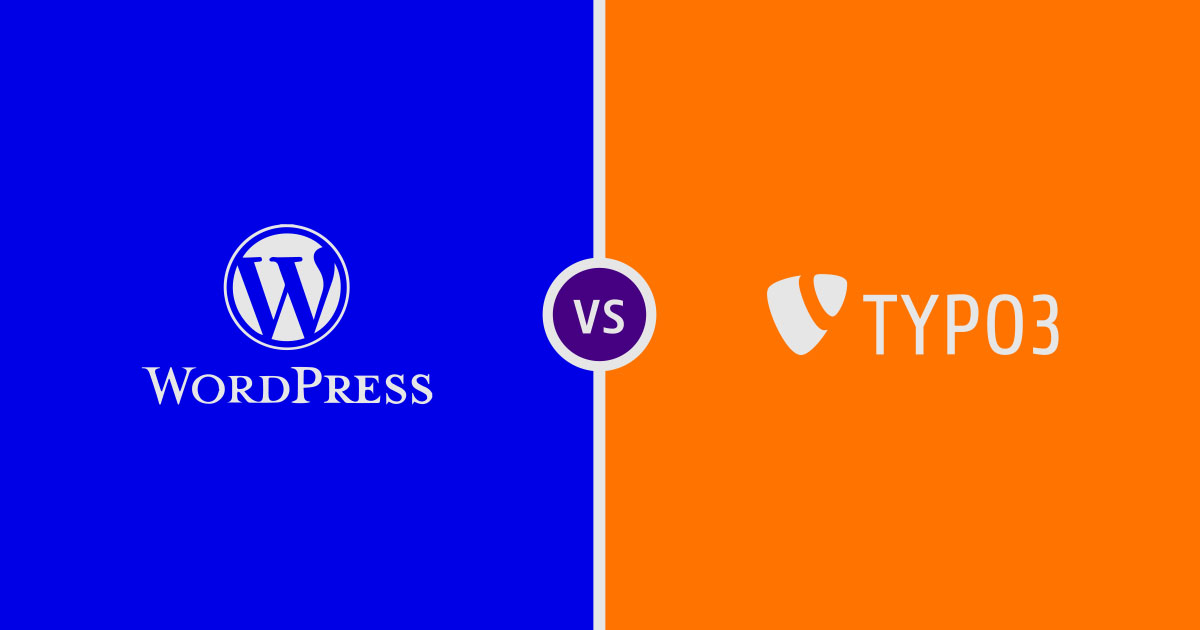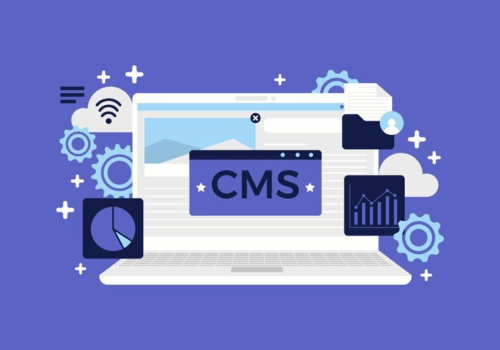TYPO3 vs WordPress: Detailed Matching
Choosing the right Content Management System (CMS) is crucial for the success of your website. TYPO3 and WordPress are two popular platforms, each with unique features and capabilities. This article aims to provide an in-depth comparison between TYPO3 and WordPress, helping you make an informed decision based on your specific needs.
Overview of TYPO3 and WordPress
TYPO3 and WordPress are widely used CMS platforms but cater to different user groups and requirements. TYPO3, known for its robustness, is often the choice for enterprise-level sites. WordPress, celebrated for its ease of use, is preferred for blogs, small to medium-sized business websites, and online stores.
TYPO3:
- Target Audience: Large enterprises, complex websites;
- Key Features: High scalability, extensive customization, multilingual support;
- Usage: Corporate websites, intranets, and e-commerce platforms.
WordPress:
- Target Audience: Bloggers, small to medium businesses;
- Key Features: User-friendly interface, extensive plugin ecosystem, strong community support;
- Usage: Blogs, business websites, e-commerce stores.
Ease of Use and Interface
TYPO3:
- Interface: More complex, steep learning curve;
- User Friendliness: Geared towards developers and users with technical expertise.
WordPress:
- Interface: Intuitive and user-friendly;
- User Friendliness: Ideal for beginners and non-technical users.
Customization Capabilities
TYPO3:
- Themes and Templates: Limited compared to WordPress but highly customizable;
- Extensions: Powerful extensions for enhanced functionality.
WordPress:
- Themes and Templates: Thousands of options with easy customization;
- Plugins: Over 58,000 plugins for adding diverse functionalities.
Performance and Scalability: TYPO3 vs WordPress
When it comes to performance, TYPO3 is renowned for its ability to efficiently handle high traffic volumes and complex site structures, making it a preferred choice for large-scale enterprises. Its architecture is designed to support expansive websites, which is crucial for businesses that anticipate growth and increased web traffic. Conversely, WordPress offers commendable performance and can handle significant traffic, but it may require additional optimization strategies, such as caching and content delivery networks, especially for high-traffic sites. While WordPress is adaptable to businesses of various sizes, it might need more resources and tools to maintain performance at a large scale, as seen in enterprise-level operations.
Security Features: A Comparative Look
In terms of security, TYPO3 has a robust framework that is particularly suited for handling sensitive data, a common requirement for large corporations and institutions. It receives regular updates to maintain security integrity and performance. WordPress, while secure in its right, often relies on plugins and consistent updates to bolster its security posture. Frequent updates are crucial on WordPress to address any emerging vulnerabilities. Users of WordPress must remain vigilant about updates and potentially invest in security plugins to ensure their site’s security is not compromised.
SEO Capabilities: Which CMS Leads?
SEO is a pivotal aspect of any website, and both TYPO3 and WordPress offer tools to enhance this. TYPO3 comes with built-in SEO tools, although it might require additional extensions for more advanced SEO features. While effective in optimizing websites for search engines, TYPO3’s SEO capabilities might necessitate some level of expertise for optimal results. On the other hand, WordPress shines in this area with its extensive range of SEO plugins, such as Yoast SEO, making it an excellent platform for SEO, even for beginners. These plugins simplify the process of optimizing content, and meta tags, and provide valuable insights to improve search rankings.
Community Support and Resources: TYPO3 vs WordPress
TYPO3’s community, though smaller compared to WordPress, is highly focused on providing solutions for enterprise-level applications. While professional support is readily available, the online resources and forums for TYPO3 are not as extensive as those for WordPress. WordPress boasts a large and active global community with a wealth of forums, tutorials, and guides. This extensive community support makes WordPress an attractive option for users who rely on self-help and community-based assistance.
Cost Considerations: Evaluating the Financial Aspects
Regarding costs, TYPO3 does not incur licensing fees, but there may be significant expenses related to professional development, hosting, and maintaining large-scale websites. These costs can add up, particularly for custom solutions tailored for complex enterprise-level websites. WordPress, being free to use, incurs costs primarily for premium themes, plugins, and hosting services. The overall cost-effectiveness of WordPress makes it a popular choice for users with budget constraints, including bloggers and small to medium-sized businesses.
Ideal Use Cases: Matching CMS to Your Needs
TYPO3 is best suited for large corporations, educational institutions, and multilingual sites where complex structures and scalability are key requirements. Its ability to handle diverse and intricate content management needs makes it ideal for large-scale projects. WordPress, with its user-friendly approach and extensive customization options, is perfect for bloggers, small to medium-sized businesses, and e-commerce startups. It provides the tools and flexibility needed to create and manage a wide range of website types without requiring extensive technical expertise.
Comparison Table: TYPO3 vs WordPress
| Feature | TYPO3 | WordPress |
|---|---|---|
| Target Audience | Enterprises, complex sites | Bloggers, small to medium businesses |
| Interface | Complex, technical | User-friendly, intuitive |
| Customization | Highly customizable, fewer themes | Extensive themes and plugins |
| Performance | High performance for large sites | Good, may need optimization |
| Security | Strong security framework | Good, enhanced with plugins |
| SEO Capabilities | Built-in tools, extensions needed for more | Excellent with plugins |
| Community | Smaller, enterprise-focused | Large, diverse |
| Cost | Development and hosting costs | Free, costs for extras |
| Ideal Use Cases | Large corporations, multilingual sites | Blogs, small businesses, e-commerce |
Identifying Whether a Website is Built on WordPress
In the context of choosing between TYPO3 and WordPress, it’s essential to understand how to identify whether a website is built on WordPress. This knowledge can be particularly useful for web developers, designers, and digital marketers who are analyzing competitors or seeking inspiration for their projects. Recognizing a WordPress-powered website involves a few straightforward methods.
Firstly, examining the website’s source code can offer immediate clues. Users can right-click on any webpage and select “View Page Source” or “Inspect Element.” In the source code, look for unique WordPress identifiers like directory paths containing ‘wp-content’ or ‘wp-includes.’ These are telltale signs of a WordPress website.
Another method involves checking the website’s footer. Many WordPress sites include a default ‘Powered by WordPress’ footer text. However, it’s worth noting that some site owners might customize or remove this footer text, making this method less reliable.
For a more technical approach, users can attempt to access the WordPress login page by appending ‘/wp-admin’ or ‘/wp-login.php’ to the site’s base URL. If the site redirects to a WordPress login page, it is likely a WordPress site. However, some websites might have security measures to hide or change these URLs.
Lastly, online tools such as BuiltWith or WPThemeDetector can be used. By entering the website’s URL into these tools, users can get a detailed report of the website’s technology stack, including whether it is powered by WordPress.
Understanding, if a website is running on WordPress, can provide insights into the website’s functionality and design, which can be beneficial when deciding between using TYPO3 or WordPress for your project. This skill is especially valuable in the digital landscape, where choosing the right CMS can significantly impact the success of your online presence.
Conclusion
In summary, TYPO3 and WordPress cater to different needs and skill levels. TYPO3 is ideal for large-scale, complex websites requiring robust functionality, while WordPress is more suited for individuals and small to medium-sized businesses seeking ease of use and extensive customization options.





